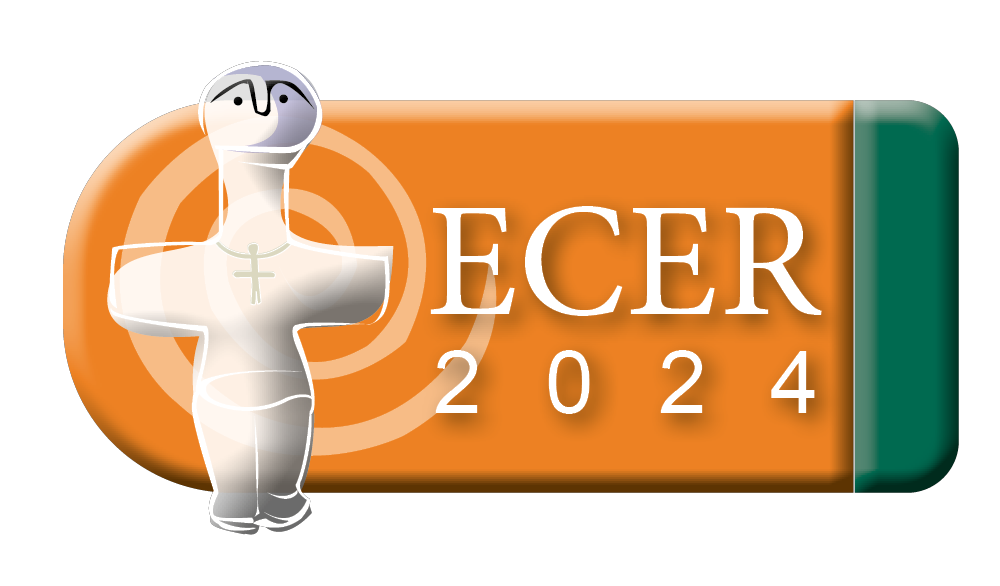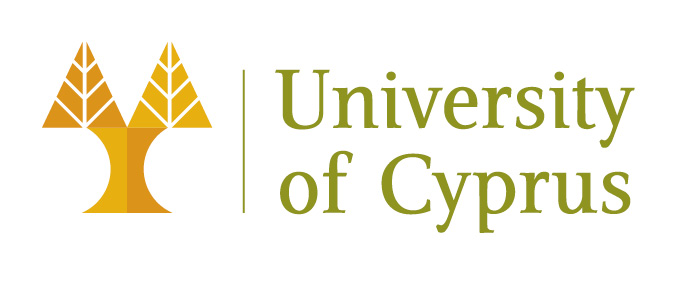Monday, 26 August
EERA networks organise workshops introducing questions within their research fields. This year, Network 04. Inclusive Education and Network 20. Research in Innovative Intercultural Learning Environments will offer workshops.
- The workshops will take place Monday, 26 August, 16:00 - 17:30
NW 04. Inclusive Education: Towards more inclusive and responsible research: Ethics and Ethical Procedures in Participatory Research
Towards more inclusive and responsible research: Ethics and Ethical Procedures in Participatory Research
Organisers and Speakers:
- Olja Jovanović (University of Belgrade)
- Ines Alves (University of Glasgow)
- Michelle Proyer (University of Vienna)
- Jonathan Rix (Open University)
In the realm of participatory research, the interplay between ethics and ethical procedures often gives rise to intriguing contradictions. This workshop is dedicated to shedding light on these inconsistencies, fostering a heightened awareness of ethical complexities throughout the various stages of research, including research design, data collection, analysis, and the dissemination of findings, with a special focus on inclusive education.
A strong drive towards enhancing integrity of the research is visible in constant development of new institutional rules and procedures that must be adhered to. To this end, participants will familiarise themselves with the ethical guidelines and procedures as delineated by prominent institutional frameworks like the British Educational Research Association, the Academy of Social Sciences, and the Economic and Social Research Council.
However, we argue that in research practices, where the process and relationships take precedence and where micro-ethical dilemmas are frequently encountered, the focus should be on the professional integrity of the researcher. As Guillemin and Gillam pointed out: "There is no direct or necessary relationship between ethics committee approval of a research project and what actually happens when the research is undertaken. The committee does not have direct control over what the researcher actually does. Ultimately, responsibility falls back on the researchers themselves – they are the ones on whom the conduct of ethical research depends." (2004, p.269). Guided by this perspective, the workshop will utilise case study-driven activities to delve into the nuanced dynamics between participation and ethics.
Participants will have the opportunity to share experiences, grapple with intricate micro-ethical dilemmas, and discuss effective strategies for navigating the researcher-participant relationship, the concept of knowledge ownership, and the sensitivity of ethical rules and procedures to different cultural practices.
NW 20. Research in Innovative Intercultural Learning Environments: Exploring Diversity Through Photovoice and Active Learning: A Participatory Action Research Approach
Exploring Diversity Through Photovoice and Active Learning: A Participatory Action Research Approach
Organised by:
- Carmen Carmona, University of Valencia
Speakers:
- Carmen Carmona, University of Valencia
- Assumpta Aneas, University of Barcelona
- Tamar Shuali Trachtenberg, Catholic University of Valencia
Diversity is an integral aspect of our increasingly interconnected world, and understanding its multifaceted dimensions is crucial for fostering inclusive and equitable communities, organizations, and institutions. This workshop seeks to shed light on innovative research methodologies, Photovoice and Active Learning, as potent tools for investigating diversity through a Participatory Action Research (PAR) lens.
Photovoice, a qualitative research technique, empowers participants to capture their experiences visually and narratively, providing an authentic platform for the expression of diverse perspectives (Wang & Burris, 1997). PhotoVoice includes critical reflections of social, political, cultural, and community factors using photographic images (Sitter, 2017; Wang, 1999). Rooted in feminist theories of inclusion and empowerment, participants determine the direction and goals of the project by taking photographs of community experiences that affect their everyday lives (Latz, 2017; Schumann et al., 2019).
Active Learning, on the other hand, engages participants in interactive, collaborative activities, fostering dialogue, self-reflection, and the exchange of diverse viewpoints (Prince, 2004).
The workshop will feature a rich tapestry of insights, experiences, and case studies, demonstrating how Photovoice and Active Learning can be seamlessly integrated into a PAR framework to address diversity comprehensively.
Key themes to be explored during the workshop include:
- The transformative power of Photovoice: How visual narratives empower marginalized communities to voice their experiences and challenge existing notions of diversity (Wang, 1999).
- Active Learning as a catalyst for meaningful dialogue: Strategies for designing interactive learning activities that promote critical thinking, self-awareness, and empathy in the context of diversity (Bonwell & Eison, 1991).
- Active learning methods presume that the educator has high expectations of all the learners and will delegate a lot of the learning process to their learners. Active learning motivates learners to explore by giving them ownership of the learning process, empowering them and helping them see that they have a role in society.
- Ethical considerations and practical challenges: Discussions on ethical considerations when working with diverse groups and addressing practical challenges in implementing these methodologies.
Thus, the workshop aims to foster a collaborative and inclusive environment where participants can exchange ideas, best practices, and insights, and inspire future research and action in the field of diversity studies. Together, we will explore how Photovoice and Active Learning, when embedded in the PAR framework, have the potential to drive positive change and promote diversity, equity, and inclusion in our ever-evolving society.
References:
Bonwell, C. C., & Eison, J. A. (1991). Active Learning: Creating Excitement in the Classroom. ASHE-ERIC Higher Education Reports.
Latz, A. O. (2017). Photovoice research in education and beyond: A practical guide from theory to exhibition. Taylor & Francis
Prince, M. (2004). Does active learning work? A review of the research. Journal of Engineering Education, 93(3), 223-231
Schumann, R. L., Binder, S. B., & Greer, A. (2019). Unseen potential: Photovoice methods in hazard and disaster science. GeoJournal, 84(1), 273–289. doi.org/10.1007/s10708-017-9825-4
Sitter, K. C. (2017). Taking a closer look at photovoice as a participatory action research method. Journal of Progressive Human Services, 28(1), 36-48.
Wang, C., & Burris, M. A. (1997). Photovoice: Concept, methodology, and use for participatory needs assessment. Health Education & Behavior, 24(3), 369-387.
Wang, C. (1999). Photovoice as a participatory health promotion strategy. Health Promotion International, 14(3), 199-206.
Witkowski, K., Matiz Reyes, A., & Padilla, M. (2021). Teaching diversity in public participation through participatory research: A case study of the PhotoVoice methodology. Journal of Public Affairs Education, 27(2), 218-237.
Tuesday, 27 August
The ERC workshop and ERC seminar address issues typically relevant to Emerging Researchers.
- The workshop and seminar will take place Tuesday, 27 August, 16:00 - 18:00.
Workshop: How to convince examiners of the merit of your thesis, by making your thinking visible within the thesis right from the start of your doctoral journey.
How to convince examiners of the merit of your thesis, by making your thinking visible within the thesis right from the start of your doctoral journey.
Organiser and speaker:
- Prof Shosh Leshem, Kibbutzim College of Education, Israel. Research Associate, Stellenbosch University, South Africa
Quality in research is to be recognized and applauded for its conceptualization and high level thinking. This thinking must be visible in the text of the thesis so that researchers, supervisors and examiners can acknowledge the scholarship of the thesis.
Questions that examiners intend to ask in doctoral defense events (vivas) is determined by what they read in your thesis. These questions display patterns of emphasis as they are then posed in the viva itself. Recognizing and acting on those patterns can provide insights into what examiners consider to be the determinants of doctorateness in a thesis. This will also determine the level of award that they will recommend to your university. So, knowing what the criteria are and what questions will possibly be asked, provides a framework from which to approach and undertake your research. Making the destination explicit should be the starting point and guide the subsequent planning and execution for your doctoral research.
- So, how can candidates be assisted to reach the level of conceptualization which is expected from a doctoral thesis and make it visible in their writing?
- How can candidates influence the outcome of the doctoral studies, by starting at the end of the journey (examiners’ questions) to visualize and plan how to begin and progress through the doctoral journey?
The workshop will introduce inescapable pre-requisites for a thesis to become doctoral- worthy. It will provide insights on what examiners consider to be the determinants of ‘Doctorateness’ in a thesis so that you can incorporate them right from the start of your writing. It will offer strategic practical tools to apply in your thesis and help candidates and readers appreciate:
- The ‘whole’ and the’ parts’ that form ‘synergy’ between the account of the research that has been undertaken and the written text.
- The high quality of conceptualisation expected from a doctoral thesis and recognized by presentation of argument and structure, which make the thesis a coherent piece of research.
The workshop will include both theory and practice where participants will be able to interact with each other and discuss issues regarding their own research.
Seminar: Academic Publishing and the Work of the EERJ
Academic Publishing and the Work of the EERJ
Speakers:
- Paolo Landri, CNR-IRPPS
- Sotiria Grek, University of Edinburgh
The European Educational Research Journal (EERJ) is an international journal that publishes peer-reviewed, cutting-edge scholarship across the full breadth of fields of educational inquiry. The journal’s focus and explicit interest in the European education research arena means that EERJ has created an outstanding record of addressing major European debates about the significance, impacts and effects of education policy, provision and processes across a range of countries and fields.
In this seminar, the journal's co-editors Paolo Landri and Sotiria Grek will discuss how to approach journal article writing, from idea conception to publication.

Important Dates ECER 2024
01.12.2023 | Submission starts |
31.01.2024 | Submission ends |
01.04.2024 | Registration starts |
03.04.2024 | Review results announced |
15.05.2024 | Early bird ends |
26.06.2024 | Presentation times announced |
30.06.2024 | Registration Deadline for Presenters |
26.08.2024 | ERC First Day |
27.08.2024 | ECER First Day |
Hosting Organisation

Local Services Website
Our partners EasyConferences support EERA, the University of Cyprus and you as conference participant in all matters around:
- accommodation
- transport
- travel advice and visa information
- bookable social and side events.